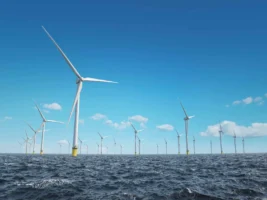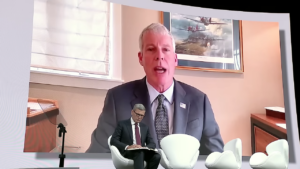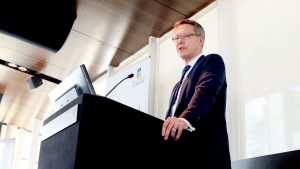Adelaide-based energy storage specialist ZEN Energy has renewed calls for changes to Australia’s electricity market rules to fast-track the rollout of grid-scale battery storage, as it reveals plans to develop a 50-150MWh project on the South Australian network, to support its proposed large-scale solar farms.
ZEN – which has graduated from the backyard of founder Richard Turner to being Australia’s first dedicated community renewable energy provider, chaired by University of Melbourne economics professor Ross Garnuat – has recently turned its attention to large-scale solar projects that will operate alongside battery storage systems to service large-scale electricity users.

The company said on Wednesday that it had been working on a major proposal for South Australia – dubbed the Big Battery Project – exploring the potential for between 50-150MW of battery storage in Port Augusta.
Garnaut and his team briefed the SA Labor government on the company’s plans earlier this week, and the multiple benefits such projects could offer by stabilising electricity supply in the region and driving down wholesale prices.
In a conversation with RenewEconomy on Friday, Garnaut said his company – alongside its sister company, US battery maker Greensmith, which was behind around 40 per cent of America’s installed battery capacity in 2016, and recently completed a 95MWh project in California – had been working on the Big Battery project over the last 15 months, to find the appropriate sizing of power and the optimal balance between power and energy.
He said the team had found that a 50MW battery, with half an hour of stored energy, would be enough to provide the kind of frequency control and ancillary services (FCAS) SA needs as it transitions away from coal power and into renewables.
A 100MWh battery, he said, would go a substantial way towards providing a buffer against surges of peak loads in extreme heat events, like this month’s heatwave, which resulted in 90,000 households and businesses temporarily losing supply.
A 150MWh battery, meanwhile, would meet the state’s needs for fast frequency response, or synthetic inertia, stabilising grid frequency and voltage at times of sudden loss of power, such as that which triggered the state-wide blackout on September 28, 2016.
But, as Garnaut has also told the Weatherill government, the development of projects like this hinge on the reform of a number of weaknesses in the regulatory framework of the NEM that skew it in favour of fossil fuel generation.
Chief among these, Garnaut told RE, are the absence of a competitive market for fast response frequency control of the kind that batteries are ideally placed to provide.
Another big hurdle, he adds, is the averaging of settlement prices of wholesale energy contracts over half hour periods, when buyers and sellers bid for power in 5 minute blocks. The fossil fuel industry, as we have reported, have argued fiercely against these changes.
Of course, ZEN is not the only company – or energy industry player – pushing for this particular rule change.
As we reported here last June, a “battle royale” over control of energy markets has been brewing in Australia for some time now, led by battery storage developers and some small energy retailers – zinc smelter operator Sun Metals is the main industry proponent of the rule change.
Efforts to change these rules are seen as an opportunity to wrest control from big, bulky, slow-response generators – who have not been averse to gaming the market and artificially driving up prices – and encourage smarter, smaller, fast-response distributed generation.
Garnaut says he has no doubt that these regulatory weaknesses will be eventually removed, but notes that the speed of their removal will be crucial to the security of Australian electricity supply in the near future.
Meanwhile, ZEN Energy will continue to work on its portfolio of diversified renewables and storage, which it says can provide secure power, on a 24-hour basis at lower cost than the conventional alternatives.
In particular, Garnaut notes that the company’s battery project would have two revenue streams, one in the FCAS markets and one in the wholesale power markets.
And the greater the volatility in wholesale markets as coal plants like Port Augusta’s Northern and Victoria’s Hazelwood are shuttered – and the higher the electricity prices – the greater the need and opportunity for large-scale batteries, he said.










